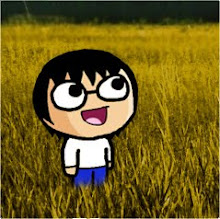
In these tablets, Enkidu and Gilgamesh goes into the Cedar Forest, while praying and making offerings to the god Shamash. They battle Huwawa, and defeat him after a while. They cut down the biggest cedar tree, so that they would be able to make a gate.
So far so good. I'm enjoying the book. Although this piece of writing is very old, I found out that it has a lot of inside meanings and symbolism. For example, Uruk symbolizes civilization, the forest represents nature, and the gate that they mention at the end of the tablet would be what divides civilization from nature. Also, in the part where both Huwawa and Enkidu are trying to convince Gilgamesh of what is right, they represent the bad and good side of humanity. It also reminds me of the terms 'takers' and 'leavers' from the book Ishmael by Daniel Quinn. I'm just saying.
So far so good. I'm enjoying the book. Although this piece of writing is very old, I found out that it has a lot of inside meanings and symbolism. For example, Uruk symbolizes civilization, the forest represents nature, and the gate that they mention at the end of the tablet would be what divides civilization from nature. Also, in the part where both Huwawa and Enkidu are trying to convince Gilgamesh of what is right, they represent the bad and good side of humanity. It also reminds me of the terms 'takers' and 'leavers' from the book Ishmael by Daniel Quinn. I'm just saying.


No comments:
Post a Comment